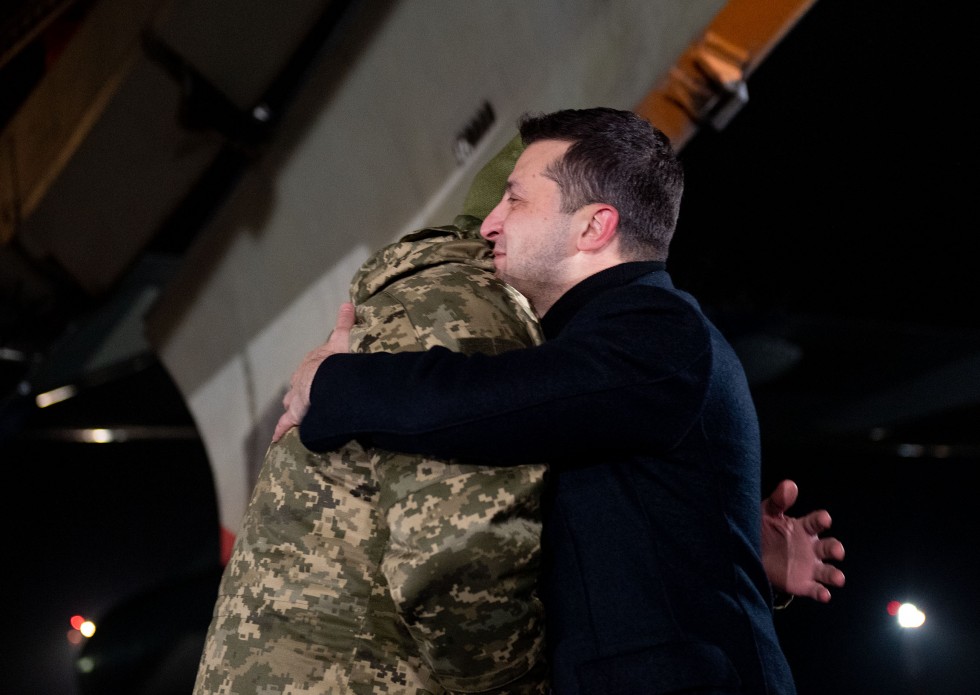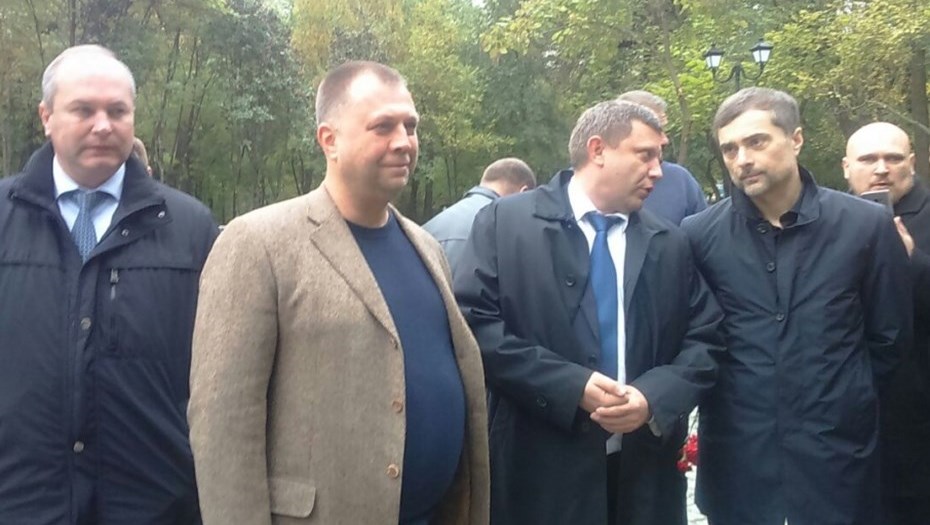Terrorists and suspects of crimes against Euromaidan activists were exchanged for Ukrainian prisoners of war held by (pro)Russian fighters. Much of Ukraine’s civil society has opposed such an unequal exchange.
Four years ago, Volodymyr Dvornikov, Viktor Tetiutsky, and Serhiy Bashlykov organized and executed a terrorist attack near the Sports Palace in Kharkiv. As a result of the attack, four people were killed. On 28 December 2019, the Kharkiv Court found them guilty, gave the life sentence, and immediately released them. The judge also ordered the destruction of evidence. Further, former Berkut employees (special police force in Ukraine – the riot police), who have been suspected of killing dozens of Euromaidan activists in 2014, got released. Both, the convicted in the terrorist attack and the suspected in the crimes against Euromaidan, were placed on the exchange list agreed by Volodymyr Zelenskyy and Vladimir Putin.
Talking about the exchange of “prisoners” with (pro)Russian fighters, Volodymyr Zelenskyy states each time that “a person’s life is of the highest value,” and therefore “he should return our boys home at any cost.” These statements include two aspects: “the highest value” and “at any cost.” The first threatens the rule of law, the second – sovereignty.
The greatest dilemma since the Euromaidan revolution has emerged in Ukraine – to release the suspects and criminals to rescue Ukrainian hostages held by Russia or to “surrender” Ukraine’s own people in order to punish suspects in the most vicious crime of independent Ukraine.
“The highest value is life.” Always and Forever?
“Life as the highest value” is a noble and ethically sound principle. However, if we view the President of Ukraine not only as a sincere kind man who wants to save the lives of the Ukrainians imprisoned by Russia-backed separatists but a statesman, then his position on “returning our boys” should be part of an integral systematic approach to human life. This integral approach, if carefully converted in an entire belief system, can become a model for the behavior of all statesmen working in his team from the top down and for the country as a whole.
Zelenskyy says: “Everyone’s life is of the highest value.” If this is an integral approach, it should concern everyone, always, and under all conditions. It must be manifested in all the acts and statements of Zelenskyy, as well as those who report to him and those whose role model he is. It should not be a selective value only in relation to the “exchange.” But will the President follow this line with respect to all Ukrainians in the future?
In order to understand whether this is an integral approach, one should look at Zelenskyy’s actions and his behavior in other circumstances. At the moment, there is no reason to believe that Zelenskyy’s statements and actions are part of an integral systematic approach to making human life the highest value in Ukraine (according to his own words), especially since the rule of law which is designed to protect the right to life of all people in the country has been dismissed for the sake of the “exchange.”
It is dangerous to subordinate the rule of law to the right to life because then there will be nothing to rely on to justify this right to life. For instance, the Berkut officers and Kharkiv terrorists took away the “highest value” – somebody’s life. That means they need to pay the highest price, as the highest value has a price, yet they were freed. Without the rule of law, we cannot explain why some killers must stay behind bars while others are released.
Moreover, the mere proclamation of life as the highest value does not automatically make it the highest value. When talking about the legal field, the right to live is not absolute. Even under the European human rights law, only the right to protection against torture, degrading or inhuman treatment is absolute. This means that the right to life may be restricted, e.g. when a state of emergency or martial law is in force. And in the political field, at the ratio of “one person’s life versus the survival of the nation,” the second is of higher value for the statesman, as long as there are national borders. That is why there are armies in almost all states of the world. And that is why soldiers know that by going to war to defend their country and preserve the dignity of their nation, there is a chance that they may not return.
“At any price” – the price of sovereignty?
Are the benefits of this exchange on Kremlin terms proportional to the risks? The risks are:
- repeated hostage-taking by (pro) Russian fighters;
- the mobilization by the (pro) Russian side of the released suspects and criminals who can act more viciously and cruelly out of revenge;
- and the perception by Russia and the entire international community of this act as a signal of Ukraine’s willingness to surrender its sovereignty.
It is already seen that the President of Russia, having influence on the President of Ukraine (whether it is blackmail or Zelenskyy’s goodwill), indirectly influenced the Ukrainian court.
In addition, along with the riot police, Ukraine handed over the right to rewrite the history of Ukraine to Russia. And the Kremlin rewrites the history of other countries with pleasure (see the recent scandal of Poland with Russia over the Kremlin’s interpretation of Poland’s involvement in the outbreak of World War II). In “1984” George Orwell writes: “He who governs the past, he controls the future.” Unfortunately, history proves he was right.
To sum up, the absence of punishment, especially when there is a high demand for it in society, mutates the values of those expecting it and stimulates future crimes. Russia’s whole war against Ukraine is a battle of values. The biggest danger here is that the Ukrainian nation that wants European values to be implemented in Ukraine moves away from these values, as it is being forced to learn that evil is good and good is evil.









